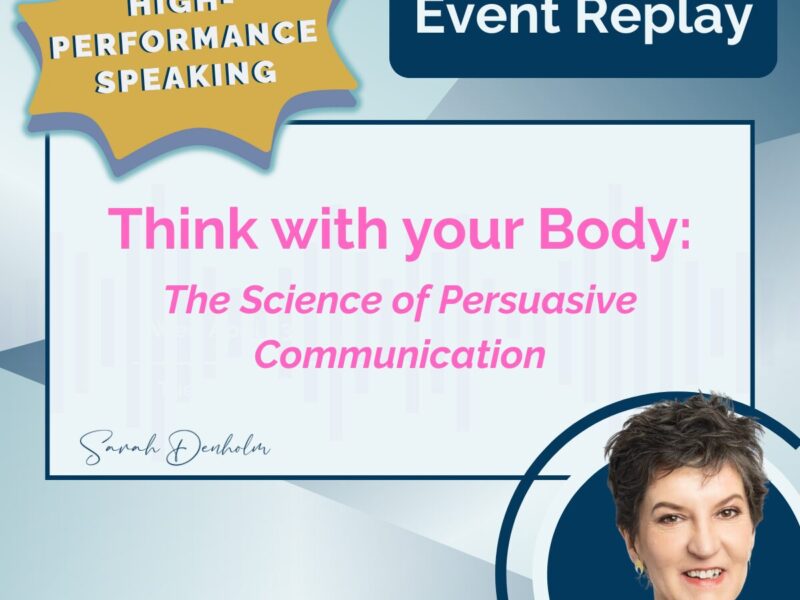One of the biggest challenges I see in client communications, whether they’re boardroom pitches or project updates, isn’t nerves, delivery, or slide design.
It’s the lack of thinking.
Polished delivery and appealing slides won’t be enough to compensate if this is missing.
Spending intentional, focused time to shape your message…to be relevant and clear for your specific audience…is crucial.
This prior thinking time makes a big difference between a speaker who merely goes through the motions and one who truly engages and makes an impact.
So why do so many people skip or skimp on this step?
- Lack of time
Most of us are under pressure, juggling multiple priorities. Thinking requires space, and in many workplaces, that space is a luxury. - Low engagement with the topic
If you’re not personally invested in your topic, or don’t see the value, the motivation to think deeply drops. But here’s a reframe: if you’re speaking anyway, how can you find something about the topic that interests you or connects with your audience? - The stakes feel low
It’s easy to dismiss a talk if it doesn’t feel important. But even a short update can be your opportunity to build credibility and connection. Thinking time lifts your everyday communication into leadership communication. - Winging it becomes a habit
Some people are naturally articulate, and winging it can seem to work… until it doesn’t. Even seasoned speakers do their thinking, they’re just more efficient at it. Don’t think that experience exempts you from this!
So before you speak, try any of these:
- Why does this matter to my audience?
What takeaway or shift do you want them to experience in understanding, mindset, and action? - What’s the one clear message or idea I want to leave them with?
If they forget everything else, what should stick? - How does the content flow?
Practising out loud will show you where your logic falters or your ideas aren’t connecting. - Where might the audience push back, and how will I respond?
Thinking through counter-arguments means fewer surprises and stronger delivery in the moment.
Time spent thinking is never wasted.
Give yourself 10 focused minutes to shape your message with intention, and you’ll stand out from the crowd of “low-quality speaking” cluttering so many meetings and events.
Have you noticed when a lack of thinking has affected your own (or others’) presentations?




